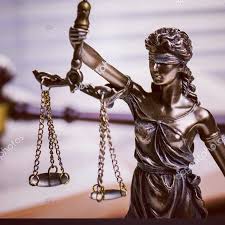Lawyer
Citizens' rights to access information during conflicts
Access to information is a fundamental human right that ensures the ability to freely receive and disseminate information. This right is especially important during conflicts, when citizens need to be informed about current events, security measures, humanitarian aid and other important aspects. In this article, we will consider the legal basis of the right to access to information, its importance during conflicts, challenges that arise during this period, and possible ways to overcome them.
Legal basis of the right to access information
International documents
International law recognizes the right to access information as a fundamental human right. The Universal Declaration of Human Rights states that everyone has the right to freedom of thought and expression, including freedom to seek, receive and impart information and ideas through any media and regardless of frontiers. The International Covenant on Civil and Political Rights also reaffirms the right of everyone to freedom of expression, including the freedom to seek, receive and impart information of all kinds.
Regional agreements
At the regional level, there are agreements that ensure the right to access information. For example, the European Convention on Human Rights guarantees the right to freedom of expression, which includes the right to receive and impart information without interference by public authorities. Similar provisions are contained in the American Convention on Human Rights and the African Charter on Human and Peoples' Rights.
National legislation
Many countries enshrine the right to access information in their constitutions and legislation. Freedom of information laws establish mechanisms to ensure that citizens have access to official documents and information held by public bodies. These laws define the procedure for submitting requests, the timeframe for providing information, and liability for failure to provide information.
The importance of access to information in times of conflict
Informing citizens
In times of conflict, access to information is critical to informing citizens about current events and security measures. Citizens need to know about the risks to their lives and health, as well as the measures they can take to protect themselves and their loved ones. Information about combat zones, evacuation routes, and locations of humanitarian aid and medical care is vital.
Transparency and accountability
Access to information contributes to the transparency and accountability of public authorities in times of conflict. Citizens have the right to know what decisions are made by the government, how budget funds are spent, and what measures are taken to ensure their safety. This helps prevent abuse, corruption and human rights violations.
Supporting civic engagement
Access to information during conflicts contributes to the active participation of citizens in public life. Information about political processes, activities of non-governmental organizations and civic initiatives allows citizens to participate in decision-making, express their opinions and suggestions, and protect their rights and interests.
Challenges in ensuring access to information during conflicts
Censorship and restrictions on freedom of speech
During conflicts, governments often resort to censorship and restrictions on freedom of speech to control the dissemination of information. This may include closing down media outlets, blocking Internet resources, detaining journalists and activists, and banning certain types of information. Such measures may be justified by the need to ensure national security, but they are often used to suppress criticism and restrict access to important information.
Disinformation and propaganda
During conflicts, the spread of disinformation and propaganda becomes a common phenomenon. Parties to a conflict can use media and social media to spread false information that misleads citizens, causes panic, or furthers political goals. It is important to distinguish between accurate information and disinformation and propaganda, which is a major challenge for citizens and the media.
Difficulties with access to information
In conflict zones, there are often difficulties with access to information due to the destruction of infrastructure, lack of electricity, and interruptions in the Internet and mobile communications. This complicates the work of journalists, human rights activists and humanitarian organizations trying to inform citizens about the current situation.
Threats to the safety of journalists and human rights defenders
Journalists and human rights defenders working in conflict zones face a high risk to their safety. They may be attacked, detained, tortured or even killed. This creates additional challenges for providing reliable and timely information about the conflict.
Ways to overcome the challenges
Support for independent media
Supporting independent media is an important step to ensure access to reliable information during conflicts. This includes financial support, protection of journalists' rights, and ensuring the safety of their work. International organizations and donors can provide grants and technical assistance to independent media operating in conflict zones.
Developing media literacy
Improving media literacy is a key aspect of the fight against disinformation and propaganda. Citizens should be able to critically evaluate information, distinguish between reliable and unreliable sources, and verify facts. This contributes to the formation of a conscious and informed society capable of resisting manipulation.
Using the latest technologies
The latest technologies can help ensure access to information even in difficult conditions of conflict. This includes the use of satellite internet, mobile applications for information exchange, and citizen journalism platforms. Technologies allow for the rapid dissemination of information, even when traditional communication channels are unavailable.
Cooperation with international organizations
Cooperation with international organizations is an important factor in ensuring access to information during conflicts. Organizations such as the UN, the OSCE, and the International Committee of the Red Cross can provide technical and financial assistance, monitor the situation, and act as intermediaries in the transfer of information. International support helps to increase the effectiveness of public awareness activities.
Protecting the rights of journalists and human rights defenders
Protecting the rights of journalists and human rights defenders is a priority during conflicts. This includes ensuring their safety, providing legal assistance, and bringing to justice those responsible for attacks on them. International organizations and human rights groups can contribute to the protection of journalists and human rights defenders by providing them with security and support.
In any legal situation, it is important to conduct a comprehensive legal analysis of the situation in order to obtain a clear understanding of its aspects and possible solutions; the legal conclusion on the situation should be based on a detailed study of the facts and application of the relevant legal provisions. To achieve the best results, it may be necessary to write a lawyer's request, writing a lawyer request will help to obtain the necessary information for further analysis.
Or, an analysis of the situation by a lawyer or attorney is a key step in formulating a legal strategy. Also, a legal analysis of the situation includes both a lawyer's opinion and an attorney's opinion, which provides a comprehensive approach to solving a legal problem. A written legal consultation or written legal advice helps the client to understand the legal aspects and possible consequences of various options.
In today's environment, legal advice online and legal consultation online are becoming especially relevant, as they provide access to legal assistance regardless of the client's location. And online consultation of a lawyer and written consultation of a lawyer allow you to quickly get the necessary information and support in legal matters.
Thus, a legal analysis of the situation by professional lawyers and attorneys is the key to a successful solution to any legal problem. A legal opinion and timely legal assistance help to protect the rights and interests of the client, ensuring effective resolution of complex legal issues. Contact the legal marketplace "CONSULTANT"! A lawyer is always there for you!




































